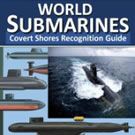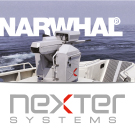 MBDA Sea Venom ANL missile. Picture: DGA |
|||
|
|
|||
|
Suitable for both blue water and cluttered littoral operations, FASGW(H)/ANL represents a major advance on the generation of missiles which it will replace from a technological standpoint. This new system provides very precise effects against a wide range of threats even in complex environments thus satisfying a recognised and common future need. A high speed two-way data-link communicates the images, “seen” by the missile’s seeker, to the operator. Therefore, in addition to initiating an autonomous engagement, the operator can also monitor the action or even remain in control of the missile throughout the full duration of its flight.
|
|||
 Sea Venom ANL jettison firing. Picture: MBDA |
|||
|
|
|||
MBDA' Sea Venom/Anti-Navire Leger (ANL) Antiship Missile Testing Well On Track
- Posted On











